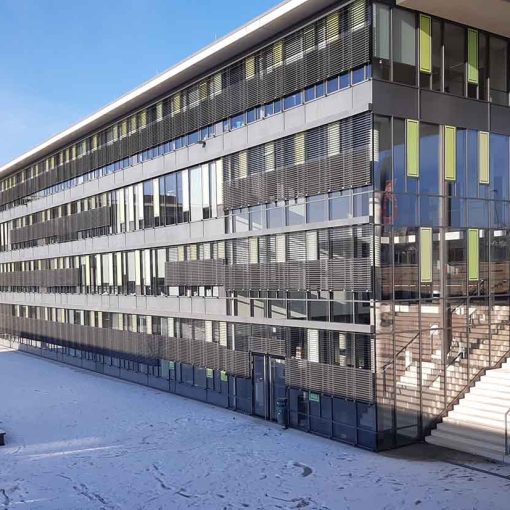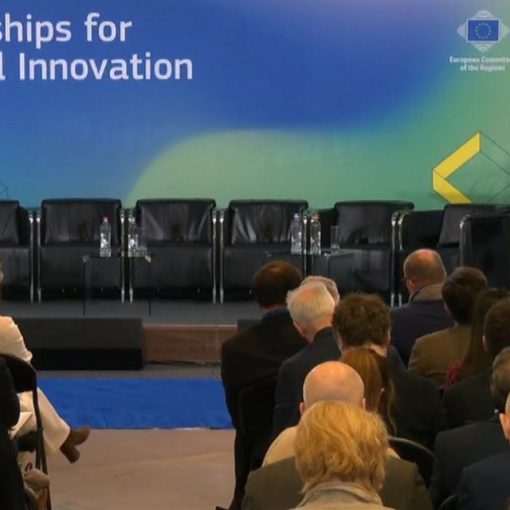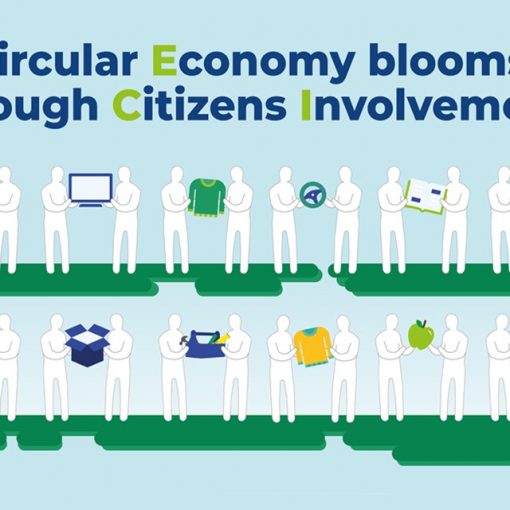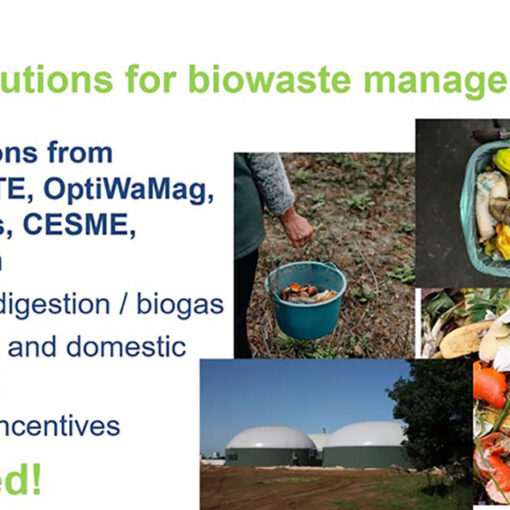The construction sector accounts for more than 35% of the EU’s waste production and contributes 5-12% of national greenhouse gas emissions through material extraction, manufacturing, and building activities. Enhancing material efficiency could potentially cut these emissions by 80%. (European Commission 2024.) Construction and demolition waste constitutes nearly a third of all generated waste, with only about 40% recycled or reused during demolition (BUILD UP Team 2024).
Aligned with the EU’s upcoming sustainable built environment strategy and the New European Bauhaus initiative, the Policy Learning Platform of Interreg Europe hosted related workshop in Vienna, Austria. The event focused on exploring and promoting biobased materials and circular approaches, including good practices, pilot projects, and policy measures within the construction industry.
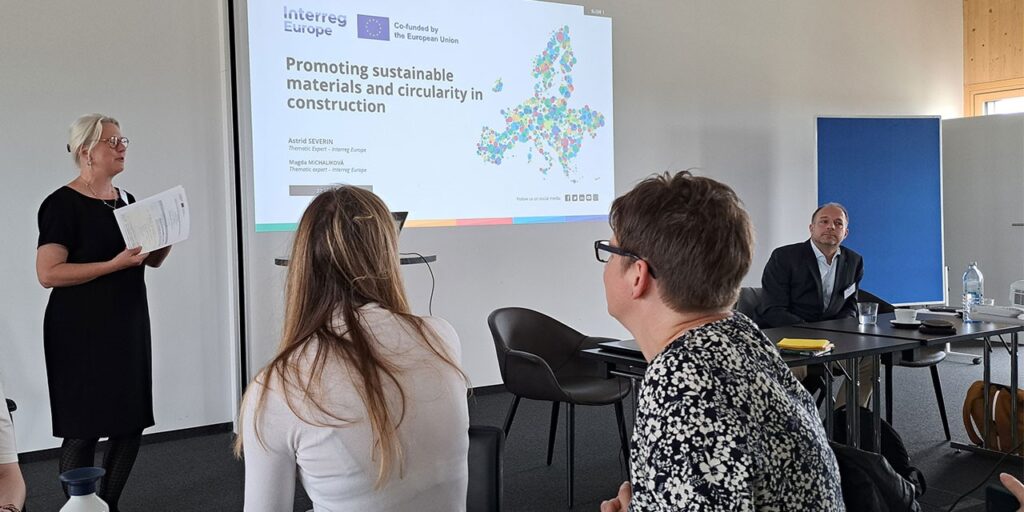
Austrian policy framework for circularity in construction
Local and regional authorities can lead change through green procurement, pilot projects, awareness campaigns, data sharing, and collaboration encouragement. They can significantly influence the market by using their buying power and managing public buildings.
Austria advances its Circular Economy Strategy in construction with a focus on sustainability. By emphasizing recycled aggregates and excavation materials and prioritizing reconstruction over new builds, Austria minimizes resource consumption. They ban landfilling of recyclables like aggregates and plan future bans for less recyclable materials after developing recycling infrastructure. Mandatory guidelines (OIB 7) for sustainable practices and procurement guidelines (nabe) with recycling targets are key initiatives. Enhanced pre-demolition audits support Austria’s circular economy goals (Starke 2024).
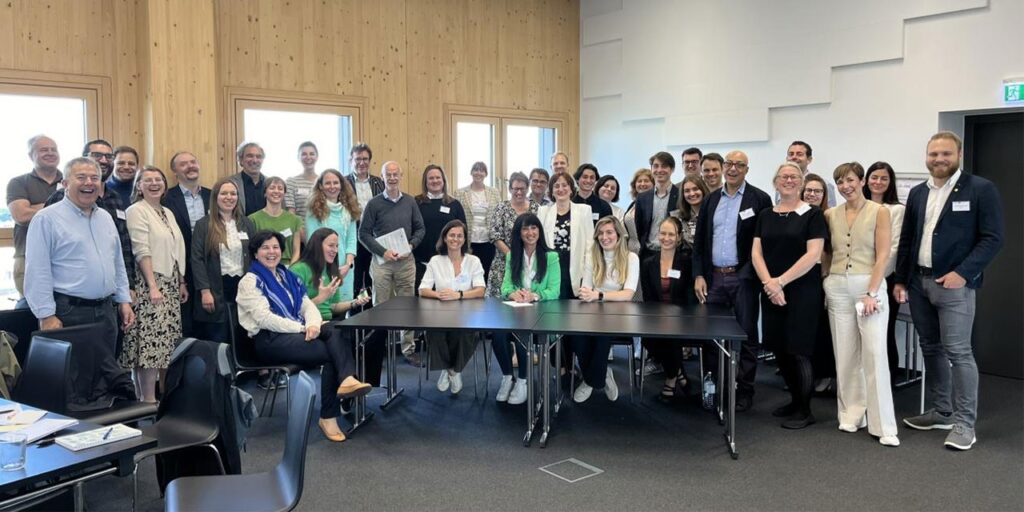
Circular Examples
Valencia’s Regional Government created the Green Guide on public procurement environmental measures in the building sector. The guide standardizes procurement procedures, ensuring efficiency, resource optimization, and reduced conflicts and delays in construction projects. (Esparza 2024.)
The Horizon 2020 BUS-GoCircular project aimed to boost demand for a green-skilled workforce and enhance capacity building. It developed a skills qualification framework for circular construction, focusing on green roofs, façades, and interior elements. The project produced extensive materials for policymakers and practitioners, including training resources for trainers and public procurers, and a guide for public authorities on promoting circular construction skills. (Dvořáková 2024.)
Link to the BUS-GoCircular Training Pack.
Circular Construction Barriers
During the workshop, an interactive World Café session was held. Participants identified several barriers to circularity in construction: resistance to change, high costs of separating materials, and lack of long-term policies and certification schemes. Knowledge isn’t well-translated into market practices, and demand and supply chains for circular materials are underdeveloped. To address these issues, setting clear recycling targets, increasing disposal costs, providing subsidies, supporting circular companies, and improving professional training are recommended. Investing in separation technologies, conducting demolition audits, and using circularity passports are essential steps to enhance material reuse and promote circular construction practices.
Author
Katerina Medkova works as an RDI Specialist at LAB University of Applied Sciences and is CITISYSTEM Project Manager.
References
Dvořáková, P. 2024. Stimulating demand for circular construction skills. BUS-GoCircular project. Oral presentation given during the Promoting sustainable materials and circularity in construction workshop on 22 May 2024. Vienna, Austria.
Esparza, P. 2024. Regional public procurement and other policy measures for sustainable construction. Oral presentation given during the Promoting sustainable materials and circularity in construction workshop on 22 May 2024. Vienna, Austria.
European Commission. 2024. Buildings and construction. Internal Market, Industry, Entrepreneurship and SMEs. Cited 1 Jul 2024. Available at https://single-market-economy.ec.europa.eu/industry/sustainability/buildings-and-construction_en#:~:text=The%20construction%20sector%20is%20responsible,of%20total%20national%20GHG%20emissions.
BUILD UP Team. 2024. Circular construction and materials for a sustainable building sector. BUILD UP Overview Article 8.5.2024. European Commission. Cited 1 Jul 2024. Available at https://build-up.ec.europa.eu/en/resources-and-tools/articles/circular-construction-and-materials-sustainable-building-sector
Interreg Europe. 2024. Workshop participants. Photos. Cited 2 Jul 2024. Available at https://www.interregeurope.eu/event/promoting-sustainable-materials-and-circularity-in-construction/conclusion
Starke, R. 2024. The Austrian policy framework for circularity in construction. Oral presentation given during the Promoting sustainable materials and circularity in construction workshop on 22 May 2024. Vienna, Austria.
Links
Link 1. Generali tat Valenciana. 2022. The Green Guide, Public Procurement Environmental Measures in the Building Sector within the scope of the Generalitat Valenciana. Cited 1 Jul 2024. Available at https://guiaverda.gva.es/documents/171665760/175934335/GUIA+VERDE+VERSION+INGLES+COMPLETA/fc484af4-58dd-4c02-ac59-bdb445fbe9e8
Link 2. Training Pack. 2024. BUS-GoCircular. Cited 1 Jul 2024. Available at https://busgocircular.eu/wp-content/uploads/TrainingPack_EU.pdf

